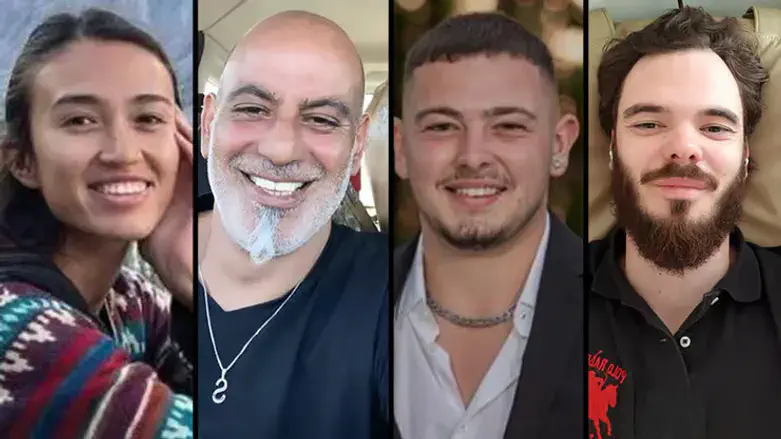
An investigation by the Wall Street Journal revealed new details on the eight months the former Israeli hostages who were rescued on Saturday endured in captivity after they were abducted from the Nova music festival on October 7.
The investigation is based on interviews with relatives of the hostages as well as Israeli security and medical officials. According to the Wall Street Journal, the three male hostages, Almog Meir Jan, Andrey Kozlov, and Shlomi Ziv, lived for six months in a small dark room, sleeping on small mattresses placed on the floor. They could hear a local family with children who lived on the floor beneath them, but never met them.
There was only one time that the captives were allowed to go downstairs and use the family's kitchen, when the entire family had left the house for a time. They were cut off from the outside world except for the guards who came to bring them food.
The guards also used physical and psychological terror on their captives, when they did not follow instructions. Among other things, the three hostages were locked in a small toilet cubicle, covered with many blankets in hot weather, and the Hamas terrorists threatened to kill them if they did not comply with their demands.
The captors also told the hostages that no one cared about them or would come for them. Despite this, they were allowed to watch an Arabic-language Al Jazeera broadcast in which they saw a large rally in support of the hostages in Tel Aviv. One of the hostages even saw a photograph of himself displayed at the rally.
The three hostages became close friends during their time in Hamas captivity, which helped them survive their months in harsh conditions. They passed the time by playing cards, teaching each other Hebrew and Russian, and keeping journals.
Dr. Itai Pessach, a senior doctor at Sheba Hospital in Tel Hashomer, who is in charge of medical treatment for the four hostages who were rescued on Saturday, told CNN in an interview on Monday that they were beaten while in Hamas captivity in Gaza.
“It was a harsh, harsh, experience, with a lot of abuse, almost every day,” he said, adding, “Every hour, both physical, mental, and other types, and that is something that is beyond comprehension.”
Pessach said the eight months spent in captivity “left a significant mark on their health” and despite appearing in good condition initially, they are all malnourished.
“They had no protein, so their muscles are extremely wasted, there is damage to some other systems because of that,” he told CNN.
Pessach said the hostages told him they were moved several times, dealing with a number of different guards. The supply of food and water was unstable.
There were periods where they got almost no food whatsoever. There were other periods where it was a little better, but all in all, the combination of the psychological stress, malnutrition or not getting enough food or not getting the right kind of food, medical neglect, being limited to space, not seeing the sun and all of the other things have [a] significant effect on health.”
